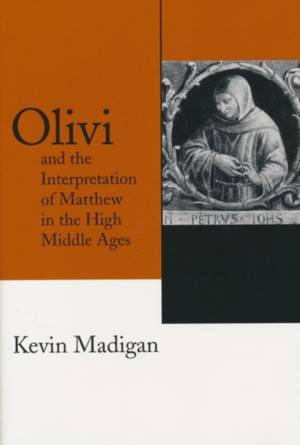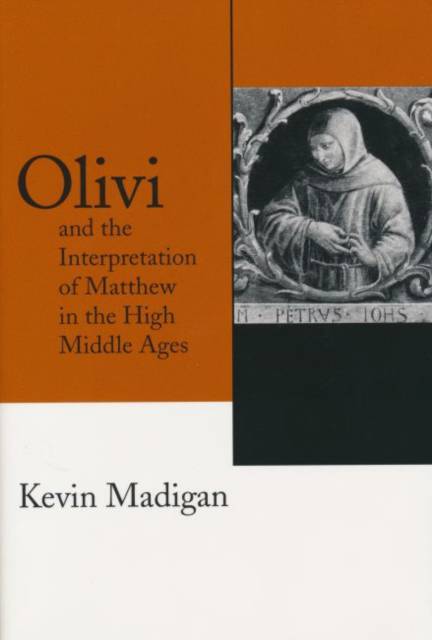
- Retrait gratuit dans votre magasin Club
- 7.000.000 titres dans notre catalogue
- Payer en toute sécurité
- Toujours un magasin près de chez vous
- Retrait gratuit dans votre magasin Club
- 7.000.0000 titres dans notre catalogue
- Payer en toute sécurité
- Toujours un magasin près de chez vous
Description
In this important new work, Kevin Madigan studies the development and union of scholastic, apocalyptic, and Franciscan interpretations of the Gospel of Matthew from 1150 to 1350. These interpretations are placed within the context of high-medieval religious life and attitudes of the papacy toward the Franciscan Order. Madigan uses the fortunes of the Franciscan Peter Olivi (d. 1298) and his commentary on Matthew as a lens through which to observe the larger theological and ecclesiastical developments of this era.
Structured in three sections, Olivi and the Interpretation of Matthew in the High Middle Ages begins with an analysis of the scholastic gospel commentary tradition in the schools of Laon and Paris. The second section of the book offers a detailed examination of the Treatise on the Four Gospels by the famed apocalyptic writer Joachim of Fiore. Finally, Madigan turns his attention to the disputes which plagued the Franciscan Order during the first century of its existence.
Madigan also focuses on Olivi's Commentary on Matthew. He argues that this little-known work is perhaps the only Matthew commentary in the high Middle Ages to have been influenced by Joachim's apocalyptic thought and shaped by internal and external disagreements over the highest form of religious life. Filled with severe criticisms of the hierarchy and leadership of the church, Olivi's Matthew commentary was examined and eventually condemned by papally appointed theologians in the early fourteenth century.
Olivi and the Interpretation of Matthew in the High Middle Ages is not only a worthy contribution to the study of gospel exegesis, but also a valuable cultural and ecclesiastical history.
Spécifications
Parties prenantes
- Auteur(s) :
- Editeur:
Contenu
- Nombre de pages :
- 240
- Langue:
- Anglais
Caractéristiques
- EAN:
- 9780268037154
- Date de parution :
- 15-10-03
- Format:
- Livre relié
- Format numérique:
- Genaaid
- Dimensions :
- 156 mm x 237 mm
- Poids :
- 476 g

Les avis
Nous publions uniquement les avis qui respectent les conditions requises. Consultez nos conditions pour les avis.






